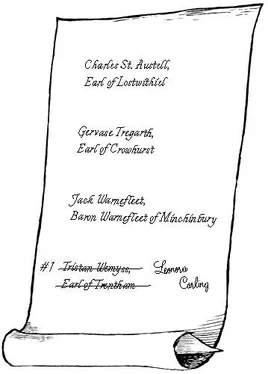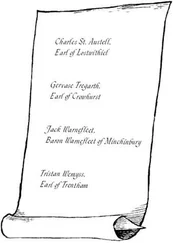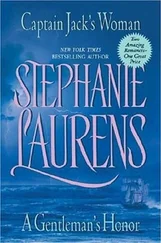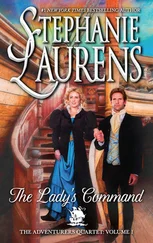All eight Gallants looked at him, then Dennis asked, “Why’s that?”
Charles gestured to their table and the deserted benches. “Let’s order another round, and I’ll tell you.”
She was again squashed into a corner; this time she could barely expand her lungs enough to breathe. But the Gallants weren’t anywhere near as friendly as Shep and Seth, nor even the Bodinnick crew, even though they knew her rather better. She recognized the son of the head gardener at Wallingham; he worked on the estate, yet there he sat, scowling blackly whenever he glanced her way.
This time it was Charles who carried the day. The Gallants listened to his explanation of his mission, then answered the questions he put to them freely; they knew and, it was patently obvious, respected him. She was relegated to a mere cipher; Charles explained her presence in terms of reassuring them over any reticence they might feel over speaking ill of her dead brother. They looked at her; all she was required to do was nod.
Their attention deflected immediately to Charles.
The tale the Gallants told was similar to what they’d heard at Polruan and Bodinnick, except that the Gallants were more specific about the lugger—a French vessel running no colors and always holding well back from their faster, lighter ships, ready to turn tail if they’d made any move to draw near.
“Always hovered nervous, and hoisted sail the instant their man was back aboard.”
“Did you ever get any indication of what Granville was doing?”
Dennis looked around the group, then shook his head. “Truth be told, I always assumed they—the Selbornes—were taking in information. I never imagined it was going the other way.”
Jammed against Charles, she felt him still. Then he murmured, “Actually, we don’t know which way it was going, not for certain. That’s why I’m here, trying to work out what was going on.”
“What about this new bugger, Arbry, then?” Dennis described the overtures Nicholas had made to the group, somewhat more definite than with the other crews, not least because, as Dennis put it, the Gallants had strung him along. “A good source of ale, he is, when he comes in.”
Charles made a less-than-civilized comment, then, laughing, called for another round. As earlier, he didn’t order anything for her. Although she was thirsty, she wasn’t game to mention it.
“You can rest assured, though”—for the first time, Dennis met her eyes—“we ain’t told Arbry anything. Nor likely to.”
Penny nodded, not even sure she was supposed to do that.
Charles asked, “Have any of you ever been involved in, or ever heard tell, of how Granville set up these meets? We’ve learned he went out with one or other of the Fowey gangs, and therefore at different points along the coast, twice or three times a year, yet each time the lugger was there, waiting.”
The eight Gallants exchanged glances, then shook their heads.
Charles persisted. “Could the lugger have been on more or less permanent station?”
“Nah.” Dennis lifted his head. “If that had been the way of it, we’d’ve come across it often enough, and we never did—not once except it was a run for Master Granville or the old earl.”
“It was the same arrangement even back then?”
“As long as I’ve been leading the Gallants, and even in my da’s day, back before then.”
Charles nodded. “So there had to be some way Granville sent word to the lugger to meet him.”
“Aye.” There were nods all around.
“It’d be through the Isles, most like.”
Charles grimaced. Attempting to trace any connection through the Channel Isles would be almost certainly wasted effort. Besides…“There still has to be some connection here—someone who took the message to the Isles, if that was how it was done.”
The Gallants agreed; they offered to ask around. “Quiet-like,” Dennis said. “Just a friendly natter here and there. We’ll see what we can learn. Meanwhiles, do you want to know if Arbry asks to do a run?”
“Yes. I doubt he will, but if he does, send word to the Abbey.”
With assurances all around, the men stood. She slid out of her corner; absorbed with farewelling Charles, none of the Gallants so much as registered her presence, then she remembered they weren’t supposed to see her.
She slipped through the shadows to the door and waited there. Two old sailors, long past the age of going to sea, had been hunched over a table a few feet from the Gallants; they watched her—when she noticed, one bobbed his head her way. Uncertain, she nodded briefly in reply.
With one last slap on the back for Dennis, Charles joined her.
“Come on.” He gripped her arm and hustled her outside, releasing her only when they were in the stable yard.
She headed to where her mare was tethered, then spotted a rain barrel; it even had a dipper. She detoured. Lifting the heavy lid, she ducked her shoulder under it so she could pour water into her hand. Charles appeared beside her; with exceedingly thin lips but not a word he held the lid for her.
When she’d drunk her fill, she glanced at him as he replaced the lid. “Why the devil are you all glowering? Brendan Mattock scowled at me the entire time we were in there.”
Charles looked at her, she sensed in exasperation. “ I’d scowl at you the entire time if I thought there was anything to be gained by it. The only difference between Brendan and me is that I know you and he doesn’t.”
With what sounded like a suppressed growl, he swung away, striding toward their horses. She was about to follow when the old sailor who’d nodded to her hobbled out of the shadows. He raised a hand; when she hesitated, he beckoned.
“Charles…”
He was back by her side in an instant. “Let’s see what he wants.”
Together they retraced their steps to where the old man waited, leaning heavily on his cane.
He ducked his head to them both. “Couldn’t help but overhear ye in there. You was asking after how young Master Granville might have got messages to a French lugger.”
Charles merely nodded.
Penny asked, “Do you know something?”
“May do, not that I’m sure, mind, but I doubt there’s many left would think of ’em to tell ye.” The old man regarded her through eyes still sharp and shrewd. “ ’Twas your father, m’lady, what brought them over—or rather, it were just the one man, a Frenchie he was, but from somewhere on the coast—Breton, maybe. Came here with your pa when he came home from abroad years ago. Smollet was the name he went by. François, or something frenchified like that.”
“Is this Smollet still alive?” Charles asked.
The old man shook his head. “Nah. Married a local lass he did, but then she up and left him—left their lad, too, but the lad—Gimby he’s called—he’s still here. He ain’t all that bright. A bit slow, you might say. Not dangerous, but not one for company.”
The man paused to draw in a wheezy breath. “Anyways, the reason you put me in mind of ’em was that they, father and son, were both weedy-like, not much brawn to ’em—none of the gangs would’a looked twice at ’em. But I tell you, they could sail. Soon a’ter he came back here with your pa, Smollet the elder left the Hall and went to live in a cottage by the river, near that marshy bit by the river mouth.”
He looked at Charles. “You’d know it, like as not.”
Charles nodded. “Go on.”
“Don’t know where he got ’em from, but Smollet had two boats. One was just a rowboat, a dinghy he used to fish from, nothing special. The other—well, that was the mystery. A sleek little craft that just flew under sail. Didn’t often see it out, but when I did, Smollet would have it running before the wind.”
Читать дальше












